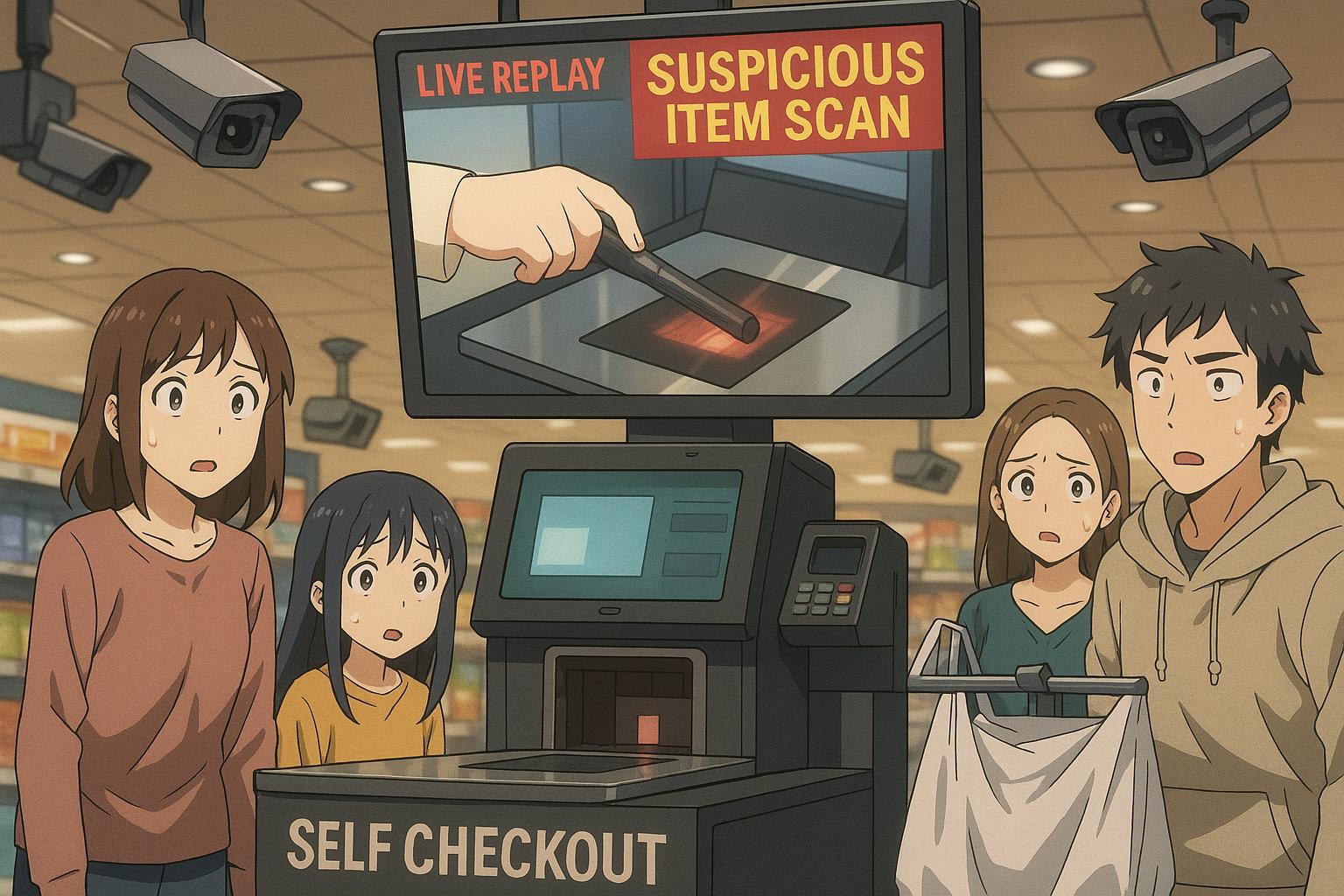Tesco's recent introduction of AI technology at select self-checkouts has sparked a wave of reactions from shoppers, many of whom draw humorous parallels to the controversial Video Assistant Referee (VAR) system in football. The new system employs overhead cameras designed to reduce incidents of shoplifting by identifying when items fail to scan correctly. When such an error occurs, customers receive a live replay on the self-checkout screen, accompanied by a prompt to retry the transaction. This initiative coincides with a troubling rise in shoplifting incidents across the UK, with recorded cases reaching a staggering 516,971 in the past year alone—a 20% increase from the previous year. Retailers report even more alarming figures, with the British Retail Consortium citing over 20.4 million thefts in the year leading up to September 2024, costing businesses an estimated £2 billion.
While some customers have taken to social media to share their light-hearted takes—one Instagram user quipped, “VAR Decision – Tuna Disallowed”—others have expressed concern that this technology signals a troubling shift towards increased surveillance. Critics argue that such measures could lead to a chilling effect, prompting some shoppers to swear off self-checkouts entirely. As one user remarked, “What’s next? Drones to follow… you about the store?” This reaction highlights a growing unease among consumers regarding privacy and the extent of monitoring in retail environments.
Tesco's move to implement AI technology at self-checkouts follows a broader trend in the retail sector, as other major supermarkets also grapple with skyrocketing theft rates. Sainsbury's recently rolled out similar technology aimed at enhancing the checkout experience while thwarting theft, underscoring the industry's collective response to what has been dubbed a retail crime epidemic. According to statistics from Ipsos, approximately 13% of adults admit to having intentionally underpaid for items at self-service checkouts, facilitating a phenomenon sometimes referred to as the "banana trick." Such admissions not only illuminate the prevalence of petty theft but also reflect the increasing reliance on self-service systems, with the number of machines in UK supermarkets growing by 50% in recent years.
Furthermore, Tesco is not merely addressing theft at self-checkouts. The company recently opened a multimillion-pound security hub in Daventry, designed to analyse extensive CCTV footage around the clock to bolster security. This facility is part of a comprehensive strategy to combat rising retail crime, which has cost the industry approximately £1.8 billion annually. This technological arms race includes not only enhanced system capabilities at self-checkouts but also equipping staff with body-worn cameras and protective screens to improve safety in stores.
Similar initiatives are being seen elsewhere. The Co-op, for instance, reported significant losses due to shoplifting, amounting to £70 million in 2023. In response, the retailer is deploying advanced AI technology at its self-checkouts to curtail theft and increase overall security. With incidents of shoplifting, along with associated violence and anti-social behaviour, reportedly averaging around 1,000 occurrences daily, the urgency for effective solutions has only intensified.
As Tesco and its competitors adapt to changing consumer behaviours and escalating theft rates, the question remains: how will shoppers respond to an increasingly monitored shopping experience? The balance between deterring theft and respecting privacy continues to spark debate, leaving both customers and retailers to navigate this evolving landscape carefully.
Reference Map:
Source: Noah Wire Services
